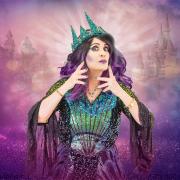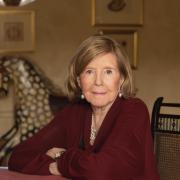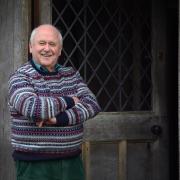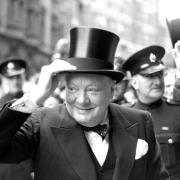David Litvinoff was at the heart of 1960s London and his story is being told for the first time by Norwich writer Keiron Pim
HE WAS a man at the centre of the swinging Sixties’ scene in London, who was as comfortable mixing with the rock and roll elite and iconic artists as he was with the Kray twins and Britain’s aristocracy. Yet his name – David Litvinoff - will be unfamiliar to most.
Norwich writer Keiron Pim has spent the past five years researching his life story - not easy as he was a character determined to leave no trace of his existence. His book, Jumpin’ Jack Flash, David Litvinoff and the Rock’n’Roll Underwold, has just been published.
“It is essentially a story about stories,” he says. “He was very much a storyteller, and unpicking the myths from the reality of his life and the lives of those around him was quite a challenge.”
The book takes readers on a journey through 1960s East End London, the coming together of a bohemian, creative scene and the darker underworld, his difficult relationship with the Krays - Ronnie in particular - and anti-Semitism.
Keiron interviewed 100 people, visiting the home where Litvinoff died in 1975, which is now owned by Sir Bob Geldolf, and travelling as far as Australia in his quest to discover the story.
“In the summer of 2010, I read two books which by coincidence both had links with David Litvinov. As I started to read on I quickly realised that here was a story that chimed with a lot of my other interests and it seemed to bring it together through this one extraordinary man – music, art, Jewish history and the underworld - and in particularly the East End of London, where I was born.”
Litvinoff’s connections read like a who’s who of 1960s’ social and popular culture – from The Beatles and Rolling Stones to George Melly, Lucian Freud and Donald Cammell - with whom Litvinoff worked on the 1970 cult British film Performance, which starred James Fox and Mick Jagger.
“When Litvinoff inveigled his way into the house on Cheyne Walk in Chelsea it is where all the cultural collisions seemed to begin: bringing villains and low-lifes and dubious bohemians into contact with upper class artists such as Tim Whidborne and Donald Cammell. It seems to be when he first managed to get some purchase on London life and give the city a good stir-up.
“If it was a Venn diagram, he is the point where all these worlds meet. It was extraordinary for a man who wasn’t really known for doing or being anything. But,” says Keiron, “A lot of people did very well out of the madness he created. They fed off the creativity and that explosion of merging cultures – from Mick Jagger to Lucian Freud.”
Keiron says that although in many ways Litvinoff was a horrible, unlikable character, his feelings about him fluctuated while writing the book.
“He was different things to different people. He was innately flawed and had a very dark side, but many talked of his empathy and the fact he was incredibly funny. When I interviewed Eric Clapton, I really started to understand him a little more as Clapton spoke of him with such warmth, fondness and admiration.”
The book is also a study of what it was like to be Jewish in London during that period.
“At that time anti-Semitism was very overt. The Jewish East End was so fascinating and the story of Litvinoff’s family is so interesting. But also Litvinoff was very much out and proud in a climate when being gay was not just socially unacceptable but illegal. He was also very proud of his Jewish roots. The book looks at his relationship with Beatles manager Brian Epstein, who was the complete opposite, he really struggled with being both Jewish and gay. It haunted him.”
The cover of the book is a copy of a portrait of Litvinoff painted by Lucian Freud and the story behind their first meeting is indicative of their tumultuous relationship.
“The similarity (between the two men) enabled Litvinoff to pass himself off as the artist in the clubs and bars of Soho and Chelsea, charging drinks to Freud’s accounts. He was finally caught out when Freud himself came in to one of the bars while Litvinoff was impersonating him,” laughs Keiron. “Freud said he had an urge to hit him, but a stronger one to paint him.” w
David Litvinoff and the Rock’n’Roll Underworld, by Keiron Pim (Jonathan Cape) is available now.



























